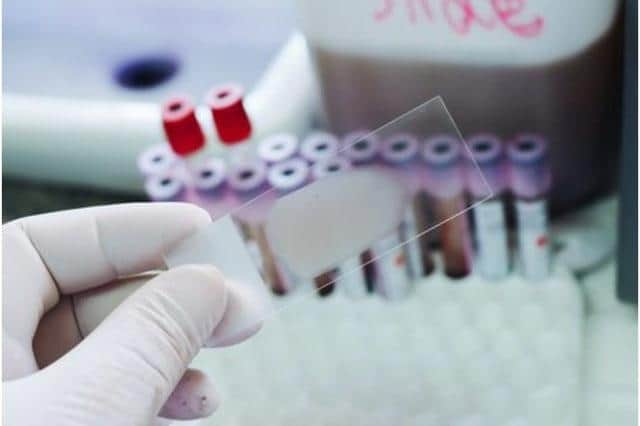Sickle cell anaemia research in York sees £2m funding boost from Bill and Melinda Gates Foundation
Some £2.3m will be used for stem cell gene therapy research at the University of York and the Wellcome Sanger Institute.
The research, delivered in collaboration with scientists in Cambridge, Boston, Tanzania and Uganda, uses a new technique to track and enumerate blood stem cells in people.
Advertisement
Hide AdAdvertisement
Hide AdSickle cell anaemia is the most serious type of sickle cell disease.


Particularly common in people with an African or Caribbean heritage, the disease has a high mortality rate in children.
In adults, sickle cell disease makes people more vulnerable to other infections as well as causing severe episodes of pain that can last up to a week at a time.
Sufferers also have a four-fold risk of developing leukaemia.
Advertisement
Hide AdAdvertisement
Hide AdLead researcher Dr Alyssa Cull, of the York Biomedical Research Institute and Department of Biology, said: “We are really excited by the opportunity to expand our studies to gather more robust real world data for leukaemia-related mutations in sickle cell patients.”
About 100m people worldwide have the sickle cell trait, but a child does not develop the disease unless it acquires the trait from both parents.
In some areas of sub-Saharan Africa, this is as high as 20 per cent of the population.
Its name comes from the shape of blood cells identified under a microscope by Ernest Irons.
Advertisement
Hide AdAdvertisement
Hide AdDr David Kent, also from the York Biomedical Research Institute and the Department of Biology, said: “The teams in Boston and at the Wellcome Sanger Institute in Cambridge have been absolutely instrumental in this project - none of this gets achieved without bringing together international teams of experts.
“Our new partners in Uganda and Tanzania bring a critical new component to the table with larger well-characterised cohorts of sickle cell patients that will allow us to understand the underlying risks of large-scale gene therapy and stem cell transplantation with respect to leukaemia development.
“Since gene therapies have been previously associated with the potential for initiating leukaemia tracking these mutations in patients over time becomes incredibly important for their future health.”
Earlier research at York, also funded by the foundation showed the power of genetic therapy approach for identifying and monitoring potential cancer-causing mutations.
Advertisement
Hide AdAdvertisement
Hide AdA study of the genes of single blood stem cells at unprecedented depths by the research team showed sickle cell disease itself causes an increase in genomic damage.
That research will be presented at next year’s American Society of Hematology meeting in Atlanta in the USA.
The next stage of the research is a two-year project will see researchers extend the studies to a large cohort of patients in Africa to understand the potential risks of gene therapy.
The Bill and Melinda Gates Foundation was set up by the technology billionaire, who co-founded Microsoft, and his ex-wife, who is a former computer scientist, to address inequalities and health problems. Launched in 2000, it is now the second largest charitable foundation in the world after the Copenhagen-based Novo Nordisk Foundation.
